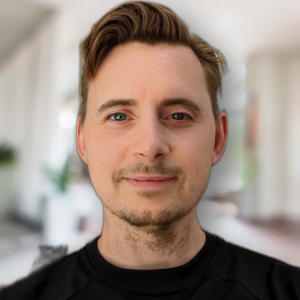Could you tell us about your contribution, Alan?
My application was based on an outstanding contribution to external and professional engagement, and a significant contribution to research and innovation, predominantly due to my work in elite sport.
As a sport scientist, I have provided scientific support to individual Paralympians, Olympians, and world champion boxers. Since 2014, I have served as the lead sport scientist for nine professionals competing in 15 world title fights and supported boxers in a total of 25 elite-title contests, along with 30 professional contests. This demanding role requires adeptly managing a multidisciplinary team within a high-pressure environment. Given the unique nature of elite sport, especially professional boxing, each contest demands personalized preparation, considering factors like the opponent, the boxer’s weight class, weight-making process, and travel considerations. As a result, I provide intensive, one-on-one scientific support to ensure optimal athlete performance and well-being.
My efforts have made significant contributions to the field of sport and exercise science. I have published three seminal scientific manuscripts, considered pivotal references for implementing scientific support in combat sports. In recognition of my sustained excellence and contributions, I achieved Accredited Sport and Exercise Scientist and Chartered Scientist (CSci) status through BASES and the Science Council in 2013. Furthermore, in 2020, I was honoured with Fellowship of the British Association of Sport and Exercise Sciences (BASES), recognising my esteemed professional achievements, skills, knowledge, and service to BASES and the sport and exercise science community.
In 2021, I received the prestigious BASES Applied Practitioner Award, which acknowledges my continuous and impactful service delivery in the field. This recognition has led to invitations to contribute feature articles for The Sport and Exercise Scientist, a BASES periodical circulated to 2,500 members, as well as the International Journal of Sports Physiology and Performance.
Throughout my career, I have produced numerous outputs, including peer-reviewed scientific papers and expert opinions featured in prominent media outlets like The Times of London, The Wall Street Journal, and the BBC. These contributions have not only elevated the recognition of sport science at Hallam but also demonstrated the extent of my external engagements.
What does it mean personally to you to be an associate professor at Hallam?
Being an associate professor at Hallam is a significant achievement and represents the acknowledgement of years of study, hard work, and dedication. It’s also a chance to reflect and to say thank you to those that have helped me in my career including, my family, friends, peers, students, and the wider academic community.
Tell us a bit about your career story so far.
I consider myself to be one of those lucky people who kind of knew what field they wanted to work in as a 10-year-old boy. I liked science and I liked sport, especially athletics, but I had no idea at that in the 1990’s, as I dreamt, the pioneers of sport science in the UK were laying the foundations for careers in the industry. I came into academia through the traditional route BSc > MSc > PhD but always had a focus on providing scientific support around my studies. One of the things that I’ve always tried to do is to say ‘yes’ to opportunities or put my hand up/throw my hat in the ring for different roles. This has lead to a range of different experiences within sport and academia, and I’ve worked with wheelchair fencers to ultra endurance runners, co-authored several scientific manuscripts and been on the other side of the fence as a journal editor, as well as being a course leader on a small course (15 student) and large course (over 400 students).
If you could go back in time and give yourself some career advice, what would it be?
In the early days, say ‘yes’ and get involved in as many activities aligned with your career goals as possible. It’s not only the experience that you’ll benefit from but the networks and connections, this is easier said than done of course, it’s extremely difficult to get out of the comfort zone but the more you do it the more comfortable you get with the unknown and being uncomfortable.
Once you have built this foundation, then it’s time to look for the golden thread in these experiences and importantly identify the things you enjoy, around this you can start to become more strategic with your career goals.
What’s next? How do you want to further develop your contribution?
It’s hard to tell what’s next given the fast-moving nature of elite sport but one thing we have at Hallam is a group of excellent applied scientists and together with the curriculum restructure and our external partners we have an opportunity to align our expertise and tackle some big questions in our discipline. Watch this space.